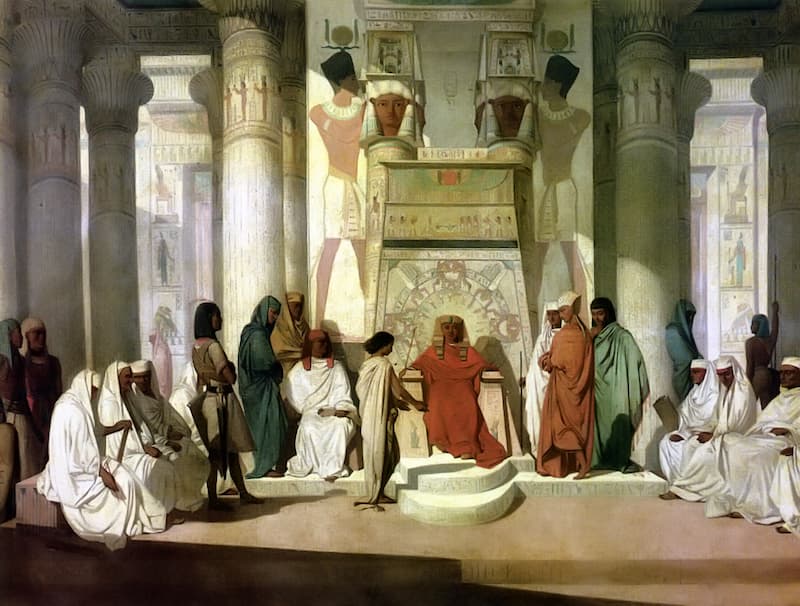When Pharaoh dreams of seven fat cows being devoured by seven lean cows, and seven fat ears of grain being swallowed by seven lean ears, Joseph’s incarceration comes to an end. Joseph interprets the dreams as seven years of plenty followed by seven years of starvation, and encourages Pharaoh to hoard grain during the abundant years. Pharaoh selects Joseph as Egypt’s governor. Joseph marries Potiphar’s daughter Asenath, and the couple had two sons, Menashe and Ephraim.
Famine has spread throughout the region, with food available solely in Egypt. Ten of Joseph’s brothers travel to Egypt to buy grain; the youngest, Benjamin, remains at home because Jacob is concerned about his safety. Joseph recognizes his brothers, but they do not know him; he accuses them of being spies, demands Benjamin to confirm their identity, and imprisons Simeon as a hostage. They later realize that the money they spent for their supplies has strangely been refunded to them.
Only after Judah accepts personal and eternal responsibility for Benjamin does Jacob agree to send him. This time, Joseph greets them warmly, releases Simeon, and invites them to a memorable meal at his home. But then he places his silver cup, which is said to be endowed with magical powers, in Benjamin’s sack. When the goblet is located, the brothers are pursued, searched, and arrested on their way home the next morning. Joseph offers to release them and keep just Benjamin as a slave.
The parasha has the most letters of any weekly Torah chapter in the Book of Genesis, but not the most words or verses. A Torah Scroll (סֵפֶר תּוֹרָה, Sefer Torah) contains 7,914 Hebrew letters, 2,022 Hebrew words, 146 verses, and 255 lines. (In the Book of Genesis, the most words are in Parashat Vayera, while the most verses are in Parashiyot Noah and Vayishlach.) We recite Parashat Miketz on the tenth Sabbath following Simchat Torah, normally in December, but occasionally in late November or early January, frequently during Hanukkah.



















One Response